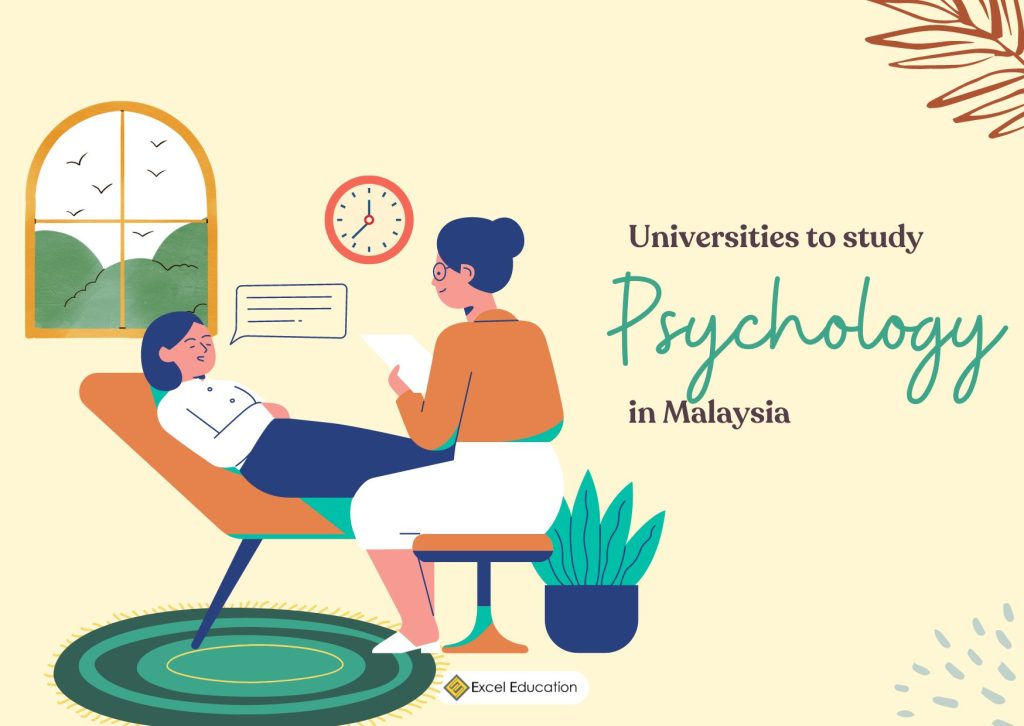
What is Psychology?
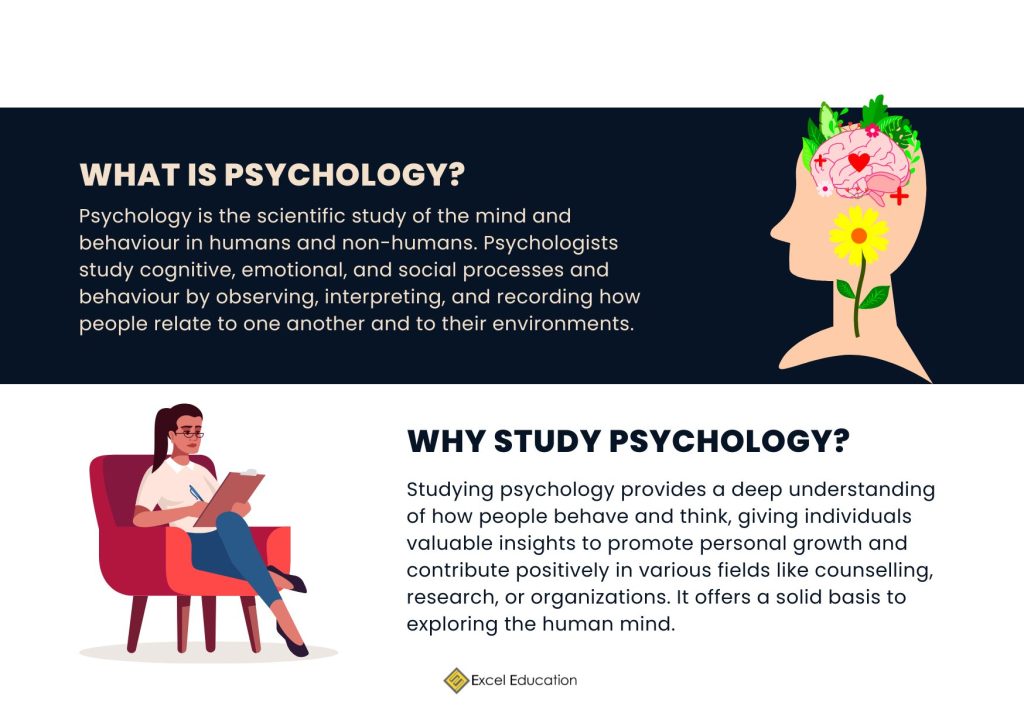
In easy terms, psychology is the scientific study of how the mind works and how people act. It tries to figure out what people think, how they feel, and what they do in different scenarios. Psychologists use research methods and tests to study different parts of how people act, such as how we learn, remember things, make decisions, and get along with each other.
Psychology is a big field that includes a lot of smaller studies and areas of study. It involves looking into things like how people grow and change, their feelings, personalities, social behaviours, mental health, and how they think. When we study psychology, we learn why people act the way they do and how we can better understand ourselves and other people. Psychology helps us understand how people work, gives us ways to improve our own lives and well-being, and guides the way we do things in areas such as therapy, education, business, and the social sciences.
Types of Psychologists
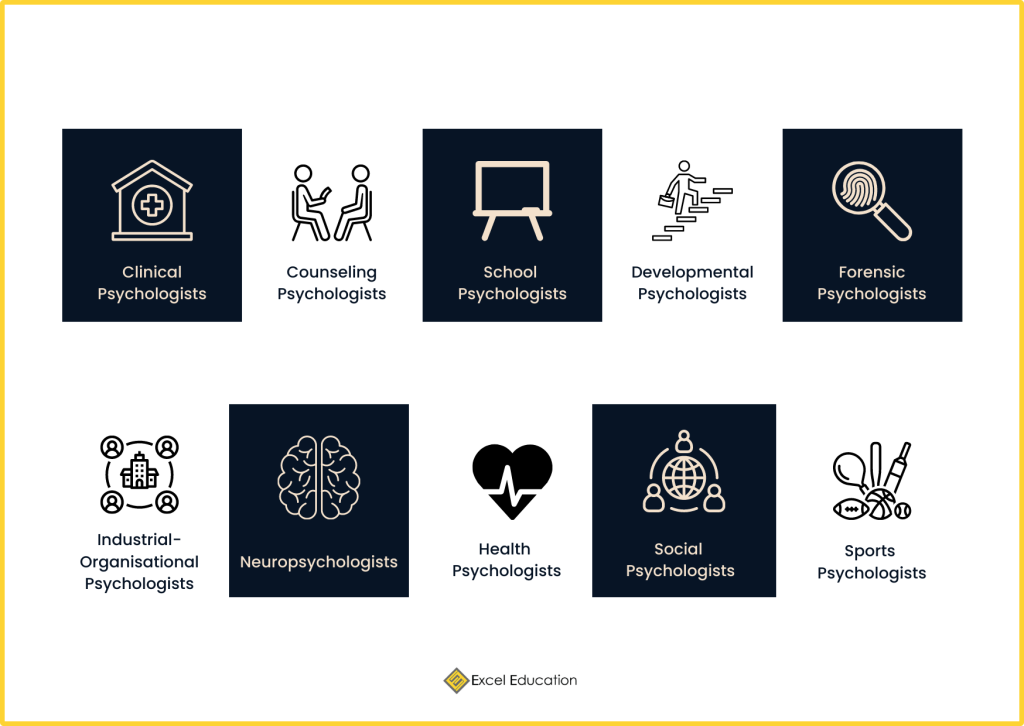
- Clinical Psychologists
Clinical psychologists evaluate, identify, and treat people with mental illness and mental distress. They also do psychotherapy and come up with plans for healing. Clinical psychologists usually work in hospitals, mental health clinics, and private practice. They are taught in a wide range of treatment methods, but they may choose to focus on certain disorders or groups of people. For example, a clinical psychologist might focus on treating people who use drugs, the mental health of children, the mental health of adults, or the mental health of the elderly.
- Counselling Psychologists
Help people with problems like mental illness, bad behaviour, emotional problems, stress, and other similar problems through psychotherapy. These professionals are a lot like clinical psychologists in many ways.
- School Psychologists
Help children deal with problems at school that have to do with their emotions, schoolwork, relationships, or behaviour. Psychologists who work in this area are very important to the education system. They usually work with parents, teachers, students, and other school staff to make sure the learning environment is safe, healthy, supportive, and productive.
- Developmental Psychologists
This type of psychologist studies how people change and grow throughout their whole lives. Some focus on a certain time, like early childhood, youth, adulthood, or old age. These professionals may do things like test children who might have a developmental delay or disability, look into problems that come with getting older, or study how language skills are learned.
- Forensic Psychologists
Forensic psychologists study how psychology and the law are connected. They help in criminal cases and legal conflicts by giving advice. They also evaluate child custody situations and provide therapy to people who have been victims of crimes.
- Industrial-Organisational Psychologists
I-O psychologists specialise in studying how people behave in the workplace. They focus on things like finding the right employees for specific jobs and finding ways to make workers more productive. An I-O psychologist might use their understanding of psychology to create tests or assessments that help identify the best candidates for specific job positions.
- Neuropsychologists
A neuropsychologist is someone who knows a lot about how brain injuries and conditions can impact how you behave, feel, and think. They conduct tests to evaluate how your brain and mind are functioning and recommend treatment plans based on their findings.
- Health Psychologists
Health psychologists focus on how psychology, biology, social interactions, and behaviour can affect a person’s overall health and well-being. They collaborate with clients to enhance their mental and physical health, aiming to promote wellness and address illness.
- Social Psychologists
Social psychologists are experts who examine how people behave in group settings and how groups can impact individual behaviour. They explore various subjects such as attitudes, prejudice, communication, relationships, aggression, and persuasion. A social psychologist conducts research to better understand these topics and gain insights into human behaviour within social contexts.
- Sports Psychologists
A field that focuses on using psychological knowledge and skills to enhance the performance and well-being of athletes. It involves understanding the psychological aspects related to sports participation, such as the development of athletes and the social dynamics within sports. Sports psychologists also address broader issues within sports settings and organisations. Their goal is to optimise performance, promote athlete well-being, and address systemic challenges within the sports world.
Abilities needed to become a Psychologist
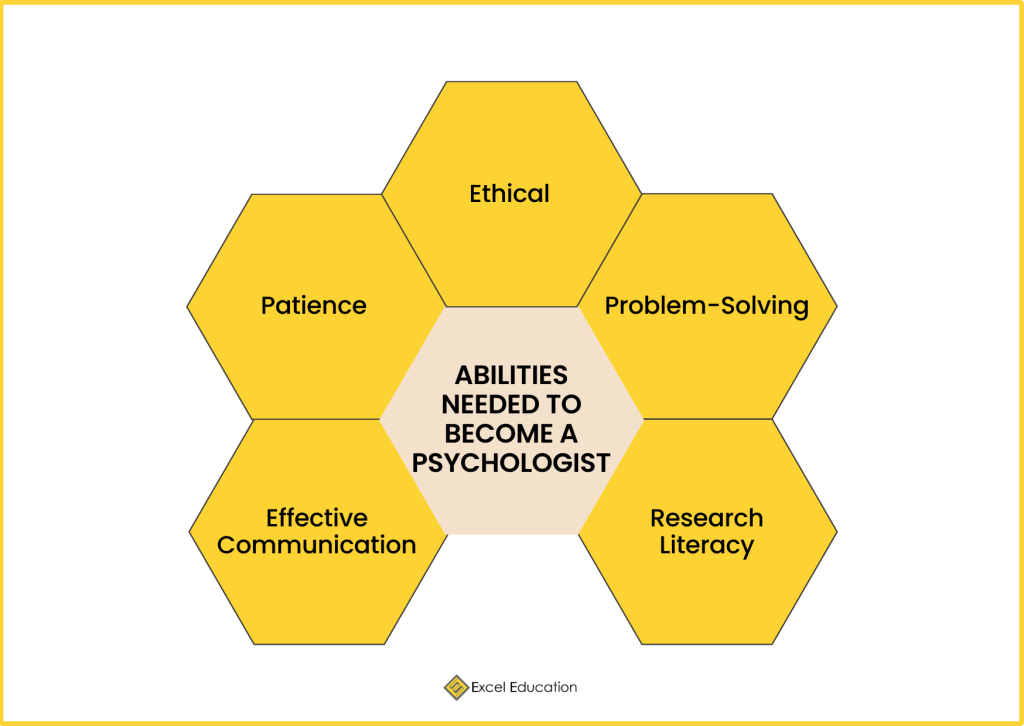
- Effective Communication
Communication is not just important but paramount in the field of psychology. Understanding human behaviour and the factors that influence it requires effective communication with clients. It is essential to gather accurate information, express thoughts and feelings, and apply observations in practical ways. Proficient communication skills are vital for establishing rapport, empathising with clients, and conveying information effectively.
- Patience
Although a Bachelor of Science in Psychology provides you with valuable knowledge, it doesn’t directly teach you the important quality of patience, which is vital in this field. Working with clients who exhibit unusual behaviour can be difficult. Patience is necessary to understand their perspectives, handle complex situations, and stay motivated despite setbacks. By being patient with clients, you can create a supportive and empathetic therapeutic environment.
- Ethical
Ethics is a foundational skill for professionals caring for others. In psychology, it guides the practice of treating all clients equally, respecting their rights, and maintaining honesty. Building trust and rapport with clients is extremely important, and ethical conduct guarantees their active participation in crucial decision-making processes. Being aware of biases and adhering to ethical principles helps provide quality care and protects the well-being of clients.
- Problem-Solving
As a psychologist, problem-solving is an essential skill when faced with unexpected challenges. Sometimes, plans may not unfold as anticipated, requiring the ability to think critically and generate effective solutions. Being adaptable and finding resolutions that benefit all parties involved is crucial in providing optimal care and addressing complex psychological issues.
- Research Literacy
Evidence-based practice and research form the backbone of psychological interventions. It is vital to rely on scientific studies and data to assess the efficacy and safety of interventions. Engaging with the research literature, staying updated with advancements, and conducting independent research contribute to improving clinical practice. Research literacy ensures the credibility of interventions and protects the well-being of clients by avoiding potentially harmful or ineffective approaches.
Eligibility to study Psychology in Malaysia
Academic Entry | Minimum Score |
Foundation | CGPA 2.00 |
Diploma | CGPA 2.00 |
STPM | CGPA 2.00 |
UEC | 5Bs |
A-Levels | CGPA 2.00 |
Australian Matriculation (ATAR) | ATAR 60 |
IB Diploma | 26 |
Note: Universities may have different requirements. To learn more, get in touch with us!
English Language Entry Requirements
Entry Level | Minimum Score |
IELTS | 5.0 |
MUET | Band 3.5 |
TOEFL | 40 |
Note: Universities may have different English Language requirements. To learn more, get in touch with us!
In Malaysia, how do you become a Psychologist?
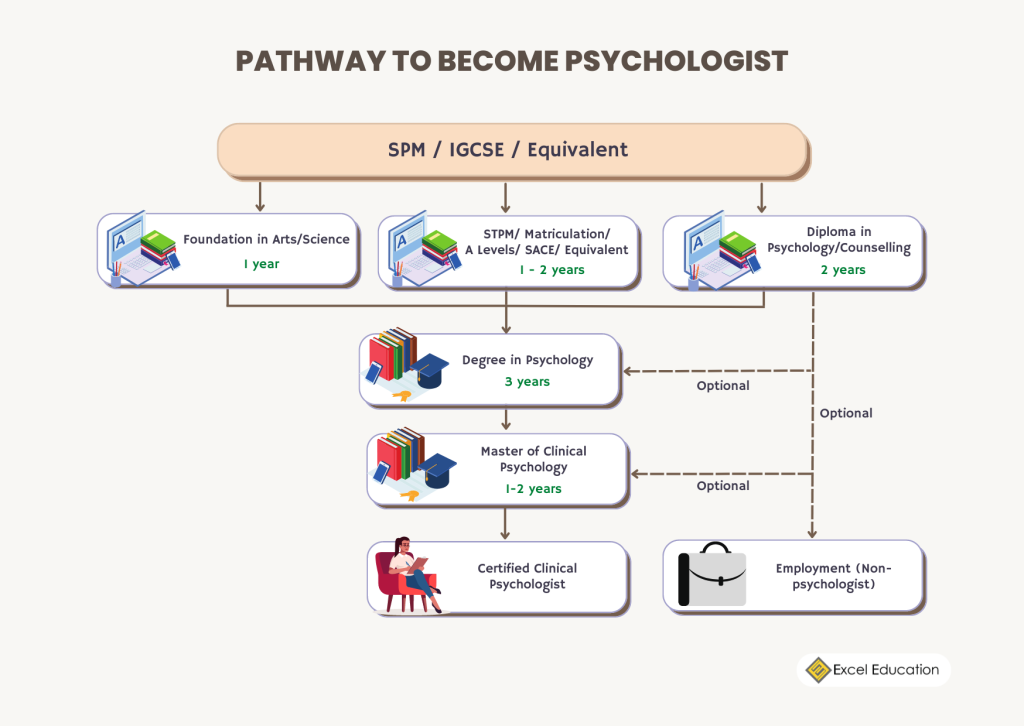
To become a certified clinical psychologist, here are the steps that you can take:
1. Complete a pre-university programme
For the pre-university programme you can choose, you can take either Foundation in Arts / Science which you complete in 1 year or A-Levels or anything that is equivalent to it as demonstrated above.
Another option is to consider pursuing a Diploma in Psychology, which typically requires a duration of 2 years. By obtaining a Diploma, you will have the flexibility to either enter relevant fields of employment after graduation or progress to the second year of a Psychology Degree programme
2. Enrol for a Degree in Psychology
After you have completed your pre-university programme, as a Diploma holder, you can either choose to straightaway join the corporate world but in a non-psychologist field or, you can choose to further your study in Degree in Psychology which will take you around 3 years to complete. However, it is essential to understand that obtaining a Diploma in Psychology does not confer the status or professional recognition of a psychologist.
3. Enrol for a Master of Clinical Psychology
To become a Certified Clinical Psychologist, it is necessary to obtain a Master’s Degree in a specialised area of Psychology, such as Clinical Psychology, Neuropsychology, or counselling Psychology. This typically requires full-time study for 2 years.
Note: It is important to remember to register with Malaysian Society of Clinical Psychology (MSCP). Being registered with the Malaysian Society of Clinical Psychologists (MSCP) signifies that your training has been recognised, and the MSCP is authorised to endorse you. Currently, in Malaysia, Clinical Psychologists are required to comply with the regulations outlined in the Allied Health Professions Act 2016.
Universities to study Psychology in Malaysia
1. Taylor's University

Taylor’s University has been around since 1969. It is part of Taylor’s Education Group, which is the biggest private education group in Malaysia and works all over South East Asia. As the best university in Malaysia, students have a lot of courses and ways to study to choose from. Taylor’s offers more than 80 programmes at both the undergraduate and graduate levels. These programmes are backed by a wide range of courses to give students more opportunities.
The programme provides students with a solid foundation of psychological theories and concepts, empirical studies and professional practice delivered by experts in the field of Psychology. The programme aims to be a catalyst of change for individuals who envision living their fuller lives for themselves, the organisation, the country and the world. This programme is compatible with the new Taylor’s Curriculum Framework that allows students to mix & match study modules.
Programme Offered | Bachelor of Psychology (Honours) |
Duration | 3 Years |
Intake | January, March, September |
Indicative Fees (2023) | Local students: RM 95,306 International students: USD 28,088 |
For more information on the table presented above, contact us now!
2. UCSI University

UCSI University’s campus is a cultural and racial melting pot thanks to the 110 nations that have sent students there throughout the years. With its extensive selection of undergraduate and postgraduate degrees, UCSI University, one of Malaysia’s first private universities, continues to have a significant influence on the country’s higher education system.
Ideal for students who are inquisitive, appreciate learning for life, and enjoy analysing behaviour and thought, this Bachelor in Psychology programme is distinguished by its effective combination of world-class theories and experiential learning, which provides a deeper understanding of human minds, emotions, and behaviours. In terms of future employability in the disciplines of social work, counselling, law, political science, and human resource management, a focus on soft skills such as communication and leadership gives students an edge.
Programme Offered | BA (Hons) Psychology |
Duration | 3 Years |
Intake | January, May, September |
Indicative Fees (2023) | Local students: RM 69,690 International students: RM 83,230 |
For more information on the table presented above, contact us now!
3. Asia Pacific University (APU)

At APU, students gain access to exceptional resources spanning various fields, granting them industry-ready skills and a distinct advantage upon graduation. In response to employers’ growing expectations, which extend beyond qualifications to encompass workplace contributions, APU actively cultivates programmes and collaborations with academic and industry partners, placing a strong emphasis on applied learning.
Students will learn to effectively and fluently relate ideas and research findings through written, oral, and visual means. They will also gain the ability to identify a wide range of information, media, and technological applications for psychological research. Furthermore, the programme aims to develop student’s leadership skills in social settings, including their understanding and communication of the role of evidence when making critical judgements about psychological issues and arguments.
Programme Offered | Bachelor of Science (Honours) in Psychology |
Duration | 3 Years |
Intake | July, September, November |
Indicative Fees (2023) | Local students: RM 87,000 International students: RM 93,500 (USD 22,805) |
For more information on the table presented above, contact us now!
4. Monash University Malaysia

Monash University is one of the world’s top institutions of international education. Monash, which was founded in Melbourne, Australia, fifty years ago, has rapidly earned a global reputation for educational excellence. Monash has a significant global presence. It was the first university from outside Malaysia to establish a campus there. Courses at Monash University Malaysia have Australian and Malaysian accreditation. This assures a flexible and supported education that is both locally relevant and globally recognised.
Over the course of this degree, you will explore the complex biopsychosocial factors that influence human behaviour, gain exposure to evidence-based and culturally informed approaches, and develop your understanding of scientific methodology and its application in psychology. You’re required study includes a core sequence of psychology units and the opportunity to complete a major stream of study in mental health and wellbeing.
Programme Offered | Bachelor of Psychology |
Duration | 3 Years |
Intake | February, July, October |
Indicative Fees (2023) | Local students: RM 117,000 International students: RM 133,500 |
For more information on the table presented above, contact us now!
5. University of Nottingham Malaysia
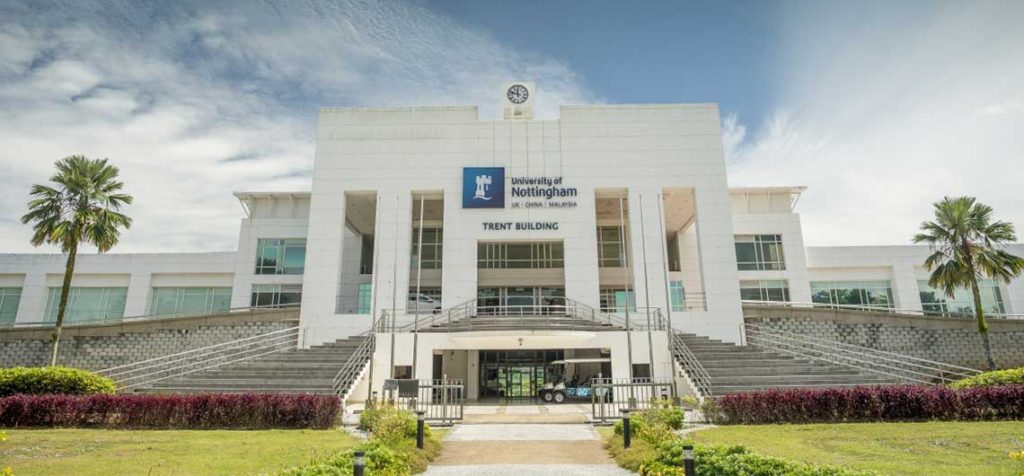
Nottingham University Malaysia (NUM) is a branch campus of the University of Nottingham, located in Semenyih, Selangor, Malaysia. It was established in 2000, and is the first British university campus in Malaysia. NUM offers a wide range of undergraduate and postgraduate programmes in various disciplines, including business, engineering, science, arts and social sciences.
The Psychology and Cognitive Neuroscience degree offered by the University of Nottingham Malaysia appeals to students for several reasons, including its broader applications to real-life situations that open up a wide range of career prospects. Additionally, the programme boasts an exceptional teaching staff comprising lecturers who hold a PhD and are experts in their respective research domains. This ensures unparalleled guidance and expertise throughout the course. Furthermore, the programmes not only provide knowledge and skills in psychology but also focus on enhancing professional and soft skills to enhance future employability.
Programme Offered | Psychology BSc (Hons) |
Duration | 3 Years |
Intake | September |
Indicative Fees (2023) | Local students: RM123,300 International students: RM145,200 |
For more information on the table presented above, contact us now!
For more information regarding the university, programs offered, entry requirements and fees, contact Excel Education.
About The Author

Qasyrina Zahirah
Still figuring out the direction of my life and most of the time life directs me to good foods and beaches 🙂

